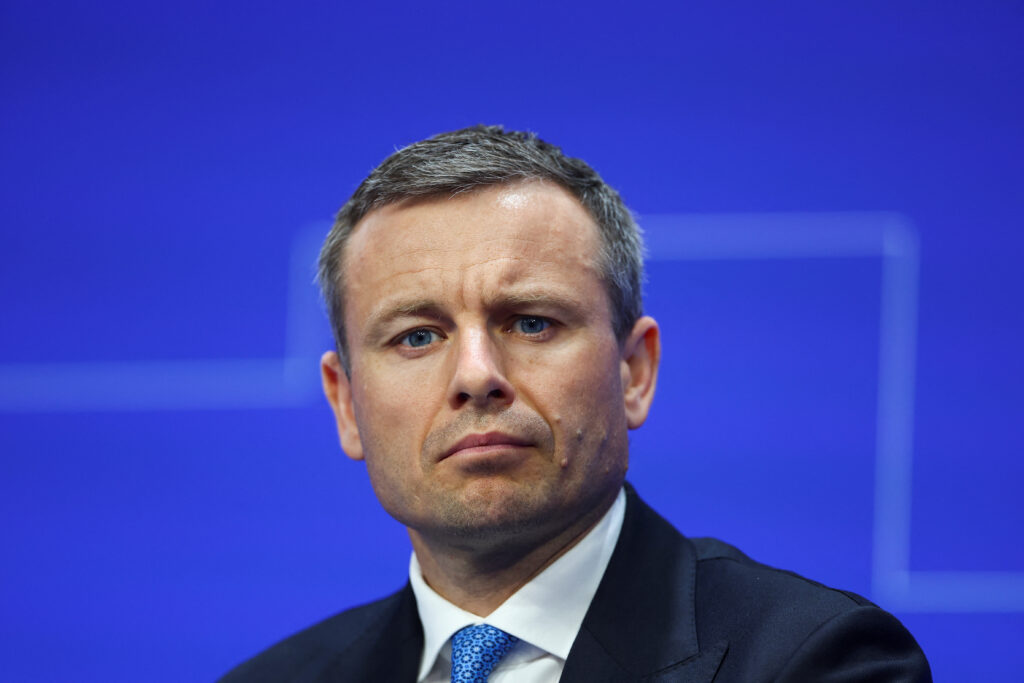Politics
ECB’s Šimkus backs EU plan to mobilize Russian cash for Ukraine’s defense

This post was originally published on this site.
VILNIUS — Europe shouldn’t be squeamish about seizing frozen Russian assets to help Ukraine keep fighting, according to Lithuanian central banker Gediminas Šimkus.
In an interview with POLITICO last week, the European Central Bank policymaker said a victory for Russian aggression could undermine trust in the euro just as much as, if not more than, reputational damage from seizing the Kremlin’s money.
EU government leaders will meet in Copenhagen this week to discuss, among other things, a contentious new plan to help Ukraine sustain a war that has drained it of both money and man power.
There are growing signs that, having shied away from controversy last year, they are now more willing to take the risk, in a world where U.S. support for Ukraine can no longer be relied on.
Attempts to take control of assets belonging to the Central Bank of Russia have been met with opposition not just from the Russian government, but also from the ECB.
ECB President Christine Lagarde is concerned that seizing cash, which enjoys sovereign immunity, would deter other countries from holding their reserves in euros. That would frustrate the EU’s ambition to make the euro a truly global reserve currency, something that would expand Europe’s economic clout and help to make it cheaper for its governments and companies to invest.
It would, however, provide cash-strapped EU capitals with a way of continuing to provide a financial lifeline to Ukraine without asking their own voters or the financial markets for money.
Breaking with the thinking of top management, Šimkus, who also sits on the ECB’s highest decision-making body, said that focusing only on arguments about the international role of the euro misses the point. Failing to provide Kyiv with the resources it needs to continue defending itself, he cautioned, would have grave consequences for the stability of the single currency.
If Ukraine were to lose the war, the risk of the conflict spilling into neighboring EU countries would surge. That scenario would shake foreign investors’ confidence in the euro far more than any fallout from the use of sanctioned cash, Šimkus argued.
“Wouldn’t we end up with an outcome that creates more risks for the euro?” he said, adding that while the security of property rights are important to the creation of a global reserve currency, so are many others, such as capital markets depth, geopolitical uncertainty and the institutional ability to evolve by implementing reform. “We can’t focus only on one aspect.”
Pressing need
Kyiv’s capability to defend its territory is increasingly dependent on outside financial help, its coffers drained by three and a half years of fighting its bigger, richer neighbor. Kyiv formally requested a new program with the International Monetary Fund earlier this month and the two sides are currently thrashing out the details of how it might look.
Last week, Bloomberg reported that the IMF estimates it will need $65 billion to get it through to the end of 2027. Ukrainian Finance Minister Serhiy Marchenko said recently that the country needs between $150 billion and $170 billion in external financing to keep going for the next four years. The IMF is likely to fund only a small part of that.
“It’s important that Europe finds ways to provide resources to Ukraine to defend its freedom and its country, [even] through the seizure of Russian assets,” Šimkus said.
At their meeting in Copenhagen on Oct.1, EU heads of government will discuss how to contribute to Ukraine’s war effort. According to a draft obtained by POLITICO, the European Commission has floated the idea of swapping €140 billion of Russian cash held by Brussels-based clearing house Euroclear with zero-coupon bonds issued by the EU. The cash would then be loaned out to Kyiv in tranches.
Germany’s Chancellor Friedrich Merz gave the thumbs up to the idea in an op-ed published Thursday by the Financial Times — although he said that the loan should only finance military aid.
Šimkus said the decision of what to do with the money is in the hands of politicians, but he welcomed the Commission’s attempt to break the impasse on one of the thorniest problems since the beginning of the war.
Finally, he said, “there is a real step forward.”

